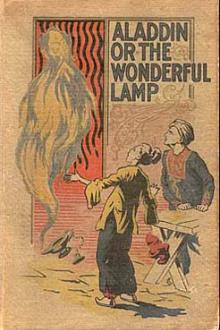The Yellow Claw by Sax Rohmer (best short novels txt) 📗

- Author: Sax Rohmer
Book online «The Yellow Claw by Sax Rohmer (best short novels txt) 📗». Author Sax Rohmer
Soames began to exhibit signs of collapse.
“Oh, my God!” he muttered, “what shall I do? I can't promise—I can't promise; but I might—I MIGHT look in at the 'Three Nuns' on Friday evening about nine o'clock.”...
He hastily scooped up M. Max's belongings, thrust them into the handbag and closed it. M. Max was now fully dressed and ready to depart. He placed a sovereign in the valet's ready palm.
“That's an appointment,” he said softly.
Said entered and stood bowing in the doorway.
“Good morning, sir, good morning,” muttered Soames, and covertly he wiped the perspiration from his brow with the corner of a towel—“good morning, and thank you very much.”
M. Max, buttoning his light overcoat in order to conceal the fact that he wore evening dress, entered the corridor, and followed the Egyptian into the cave of the golden dragon. Ho-Pin, sleek and smiling, received him there. Ho-Pin was smoking the inevitable cigarette in the long tube, and, opening the door, he silently led the way up the steps into the covered courtyard, Said following with the hand bag. The limousine stood there, dimly visible in the darkness. Said placed the handbag upon the seat inside, and Ho-Pin assisted M. Max to enter, closing the door upon him, but leaning through the open window to shake his hand. The Chinaman's hand was icily cold and limp.
“Au wrevoir, my dear fwriend,” he said in his metallic voice. “I hope to have the pleasure of gwreeting you again vewry shortly.”
With that he pulled up the window from the outside, and the occupant of the limousine found himself in impenetrable darkness; for dark blue blinds covered all the windows. He lay back, endeavoring to determine what should be his next move. The car started with a perfect action, and without the slightest jolt or jar. By reason of the light which suddenly shone in through the chinks of the blinds, he knew that he was outside the covered courtyard; then he became aware that a sharp turning had been taken to the left, followed almost immediately, by one to the right.
He directed his attention to the blinds.
“Ah! nom d'un nom! they are clever—these!”
The blinds worked in little vertical grooves and had each a tiny lock. The blinds covering the glass doors on either side were attached to the adjustable windows; so that when Ho-Pin had raised the window, he had also closed the blind! And these windows operated automatically, and defied all M. Max's efforts to open them!
He was effectively boxed in and unable to form the slightest impression of his surroundings. He threw himself back upon the soft cushions with a muttered curse of vexation; but the mobile mouth was twisted into that wryly humorous smile. Always, M. Max was a philosopher.
At the end of a drive of some twenty-five minutes or less, the car stopped—the door was opened, and the radiant Gianapolis extended both hands to the occupant.
“My dear M. Gaston!” he cried, “how glad I am to see you looking so well! Hand me your bag, I beg of you!”
M. Max placed the bag in the extended hand of Gianapolis, and leapt out upon the pavement.
“This way, my dear friend!” cried the Greek, grasping him warmly by the arm.
The Frenchman found himself being led along toward the head of the car; and, at the same moment, Said reversed the gear and backed away. M. Max was foiled in his hopes of learning the number of the limousine.
He glanced about him wonderingly.
“You are in Temple Gardens, M. Gaston,” explained the Greek, “and here, unless I am greatly mistaken, comes a disengaged taxi-cab. You will drive to your hotel?”
“Yes, to my hotel,” replied M. Max.
“And whenever you wish to avail yourself of your privilege, and pay a second visit to the establishment presided over by Mr. Ho-Pin, you remember the number?”
“I remember the number,” replied M. Max.
The cab hailed by Gianapolis drew up beside the two, and M. Max entered it.
“Good morning, M. Gaston.”
“Good morning, Mr. Gianapolis.”
XXXIII LOGIC VS. INTUITION
And now, Henry Leroux, Denise Ryland and Helen Cumberly were speeding along the Richmond Road beneath a sky which smiled upon Leroux's convalescence; for this was a perfect autumn morning which ordinarily had gladdened him, but which saddened him to-day.
The sun shone and the sky was blue; a pleasant breeze played upon his cheeks; whilst Mira, his wife, was...
He knew that he had come perilously near to the borderland beyond which are gibbering, moving things: that he had stood upon the frontier of insanity; and realizing the futility of such reflections, he struggled to banish them from his mind, for his mind was not yet healed—and he must be whole, be sane, if he would take part in the work, which, now, strangers were doing, whilst he—whilst he was a useless hulk.
Denise Ryland had been very voluble at the commencement of the drive, but, as it progressed, had grown gradually silent, and now sat with her brows working up and down and with a little network of wrinkles alternately appearing and disappearing above the bridge of her nose. A self-reliant woman, it was irksome to her to know herself outside the circle of activity revolving around the mysterious Mr. King. She had had one interview with Inspector Dunbar, merely in order that she might give personal testimony to the fact that Mira Leroux had not visited her that year in Paris. Of the shrewd Scotsman she had formed the poorest opinion; and indeed she never had been known to express admiration for, or even the slightest confidence in, any man breathing. The amiable M. Gaston possessed virtues which appealed to her, but whilst she admitted that his conversation was entertaining and his general behavior good, she always spoke with the utmost contempt of his sartorial splendor.
Now, with the days and the weeks slipping by, and with the spectacle before her of poor Leroux, a mere shadow of his former self, with the case, so far as she could perceive, at a standstill, and with the police (she firmly believed) doing “absolutely... nothing... whatever”—Denise Ryland recognized that what was lacking in the investigation was that intuition and wit which only a clever woman could bring to bear upon it, and of which she, in particular, possessed an unlimited reserve.
The car sped on toward the purer atmosphere of the riverside, and even the clouds of dust, which periodically enveloped them, with the passing of each motor-'bus, and which at the commencement of the drive had inspired her to several notable





Comments (0)